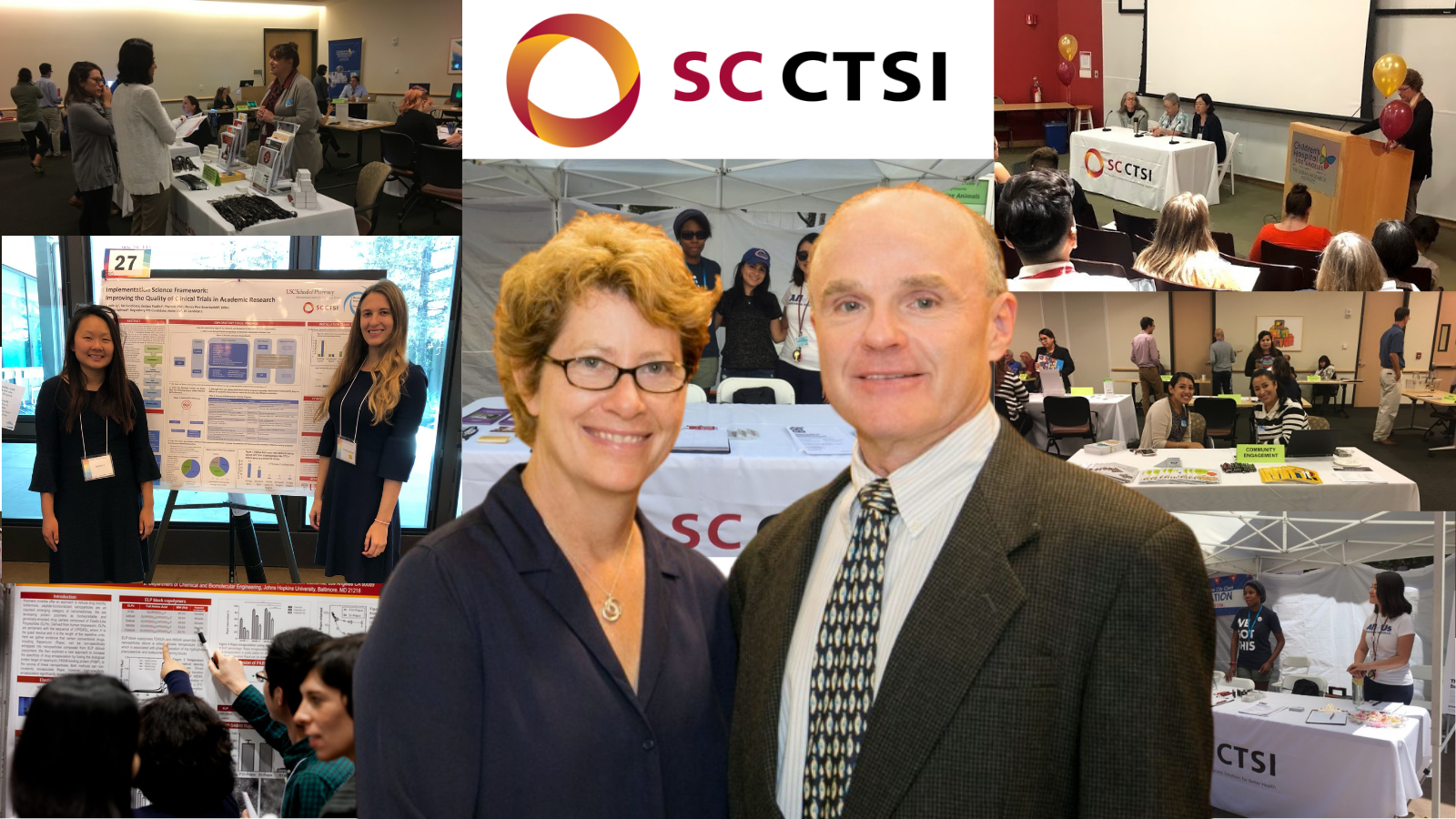SC CTSI Earns a “Perfect 10” on Application to NIH

The SC Clinical and Translational Science Institute (SC CTSI) at the University of Southern California (USC) and Children’s Hospital Los Angeles (CHLA) just received a perfect score of 10 – a rare accomplishment – on its $50M application to the National Institutes of Health (NIH) to renew the Clinical and Translational Science Award that supports the SC CTSI. We anticipate that this outstanding score will provide the SC CTSI with five years of funding to support clinical and translational research across USC, CHLA and with our surrounding communities, including communities served by the Los Angeles County Department of Health Services.*
“This is the highest accolade our team could have gotten from NIH peer reviewers. It reflects the high quality of the work we have done in support of research to improve health as well as our innovative plans to do even more in the next five years,” said Thomas Buchanan, MD, Director of the SC CTSI and Vice Dean of Research at the Keck School of Medicine of USC. “I couldn’t be prouder of the people and work of the SC CTSI.”
CTSAs are awarded by the National Center for Advancing Translational Sciences (NCATS) at NIH to help major universities translate observations in the laboratory, clinic and community into interventions that improve the health of individuals and the public. Awards are made on a competitive basis based on each program’s past accomplishments and future plans. The perfect score of 10 reflects the SC CTSI’s excellence on both fronts.
Notable past accomplishments have resulted from support the SC CTSI provided to more than 1,200 investigators in 14 schools across USC and CHLA. Researchers working with LAC+USC Medical Center developed improved approaches to clinical care to reduce hospital admissions and amputations in patients with diabetes. Team science experts in the SC CTSI helped cancer researchers develop the nation’s first center for Young Adult Cancer Survivorship. A partnership with USC Annenberg’s Hollywood, Health & Society resulted in 17 clinical trial storylines in 10 television shows to help the public better understand the importance of participating in clinical research. Currently, SC CTSI is leading the charge in responding to the COVID-19 pandemic by launching VaccinateLA, a community partnered vaccination campaign supported by the W.M. Keck Foundation that has reached over a million residents in Los Angeles to date.
The SC CTSI has already trained 40 new translational researchers who have published more than 900 papers and obtained over $73M in new grant funding. Their work has been very impactful. For example, research advances by the Institute’s KL2 alumni have led to changes in post-surgery opiate prescribing guidelines for children at CHLA; advances in the development of brain-computing interfaces for control of artificial limbs; reduction of antibiotic exposure among children who require tracheostomies; and advances in early detection of cystic fibrosis in infants and preschool children.
“I am so proud of what we have accomplished but I am also really excited about how we build on this foundation of success to launch new initiatives designed to improve the health of our patients and local communities,” said Michele Kipke, PhD, Co-Director of the SC CTSI, Director of the SC CTSI Community Engagement program, and Vice Chair of Research at Children's Hospital Los Angeles.
During the next five years, the SC CTSI anticipates to launch more than 30 new initiatives, including a new internship programs to attract local high school and college students to careers in research, outreach programs to address health disparities in underserved communities, research to understand COVID-19 long-haul symptoms in pediatric populations, an initiative to prevent type 2 diabetes and obesity in Los Angeles and throughout Southern California, continued work with the writers and producers of popular television shows to address the health needs of high-disparity communities throughout the U.S., application of Artificial Intelligence to predict and improve health outcomes, and use of social and environmental determinants of health to advance precision research and clinical care.
*Funding is not guaranteed until the Notice of Award is issued.
The content is solely the responsibility of the authors and does not necessarily represent the official views of the National Institutes of Health.



